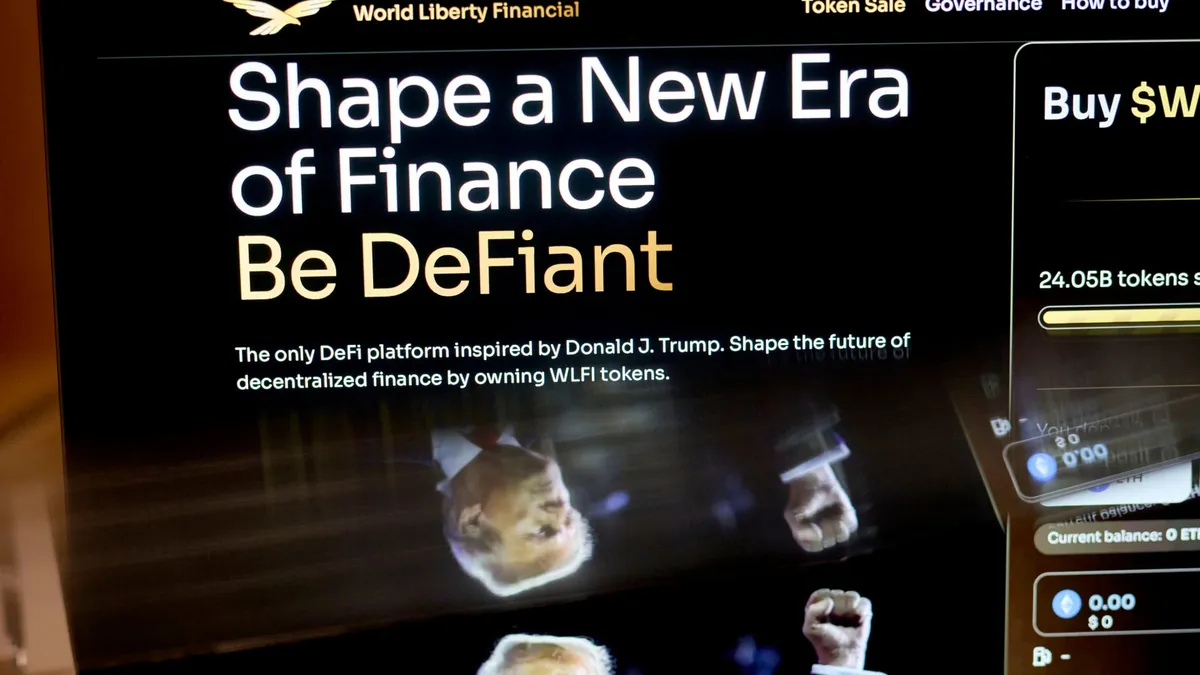
World Liberty Financial, a decentralized finance venture associated with former President Donald Trump and his family, has officially launched a new stablecoin named USD1. This move positions the company within an increasingly competitive stablecoin market. The announcement was made on Tuesday, revealing that USD1 will be pegged to the U.S. dollar and will be supported by short-term U.S. government treasuries, U.S. dollar deposits, and various cash equivalents. The stablecoin is set to debut on both the Ethereum and Binance Smart Chain networks shortly.
According to Zach Witkoff, co-founder of World Liberty Financial, USD1 aims to offer what many algorithmic and anonymous crypto projects fail to provide — the robust advantages of decentralized finance (DeFi) backed by the trustworthiness and protections associated with established names in traditional finance. "We are creating a digital dollar stablecoin that sovereign investors and major institutions can seamlessly integrate into their strategies for secure cross-border transactions," he explained.
The launch of USD1 coincides with a notable increase in the market capitalization of dollar-backed stablecoins, which have risen over 46% in the past year, according to data from CryptoQuant. These cryptocurrencies, designed to maintain a fixed value pegged to another asset, have seen their market reach new all-time highs this year. Historically, the stablecoin market has been dominated by Tether (USDT) and more recently, Circle's USDC.
Since its inception in October, World Liberty Financial has successfully raised $550 million through two token sales, with the latest round bringing in $250 million just last week. This Trump family-backed initiative, which positions itself as a crypto banking platform, also revealed that entities linked to the Trump family could receive up to 75% of the venture's net revenue. The token sales have attracted over 85,000 verified participants, including notable backers like Justin Sun, the founder of Tron, who increased his investment to $75 million in January while engaging in settlement discussions with the SEC regarding a civil fraud case.
The rapid development of World Liberty Financial comes at a time when the Trump administration is intensifying its focus on cryptocurrency. Earlier this month, former President Trump enacted an executive order aimed at establishing a Strategic Bitcoin Reserve. Additionally, David Sacks, the administration's appointed czar for AI and crypto, announced the divestment of over $200 million in digital asset investments to mitigate potential conflicts of interest.
Witkoff asserts that their project is poised to significantly enhance the DeFi landscape, despite growing scrutiny surrounding its financial framework and political connections. The stablecoin sector has become increasingly critical in the crypto ecosystem, serving as a vital tool for trading on both centralized and decentralized exchanges and acting as collateral within DeFi applications. Market participants closely monitor stablecoins to gauge demand, liquidity, and overall market activity.
World Liberty Financial is the latest entrant in a crowded stablecoin space. Other notable U.S. issuers include PayPal and Gemini. In December, Ripple introduced its own stablecoin, ripple USD (RLUSD), while a consortium featuring companies like Robinhood, Galaxy Digital, and Kraken launched the Global Dollar (USDG) and the accompanying Global Dollar Network.
As the call for stablecoins to preserve the dominance of the U.S. dollar intensifies, Treasury Secretary Scott Bessent emphasized at the recent White House Crypto Summit the need to maintain the U.S. as the leading reserve currency globally, with stablecoins playing a pivotal role in that strategy. At the Digital Asset Summit in New York City, Trump addressed participants virtually, asserting that the industry could spur significant economic growth, particularly through dollar-backed stablecoins that would enhance the U.S. dollar's global standing.
The push for stablecoin legislation is gaining momentum, with many in the industry viewing it as a priority for regulatory action. The GENIUS Act, aimed at establishing a regulatory framework for stablecoins, has recently advanced through the Senate banking committee with bipartisan support. Once stablecoin regulations are enacted, it is anticipated that banks will also begin issuing their own stablecoins, leveraging their potential for faster, cheaper, and more transparent payment systems.
According to Alex Thorn, head of firmwide research at Galaxy Digital, stablecoin legislation is politically more feasible but could have profound implications for both the United States and the global economy. "Who regulates whom is critical, especially for those facing regulation, but the stablecoin bill could solidify dollar dominance for the next century," he stated.
For those looking to deepen their understanding of the evolving financial landscape, consider attending the upcoming CNBC Pro LIVE event at the New York Stock Exchange. This exclusive event will feature insights from financial experts and provide networking opportunities for attendees.